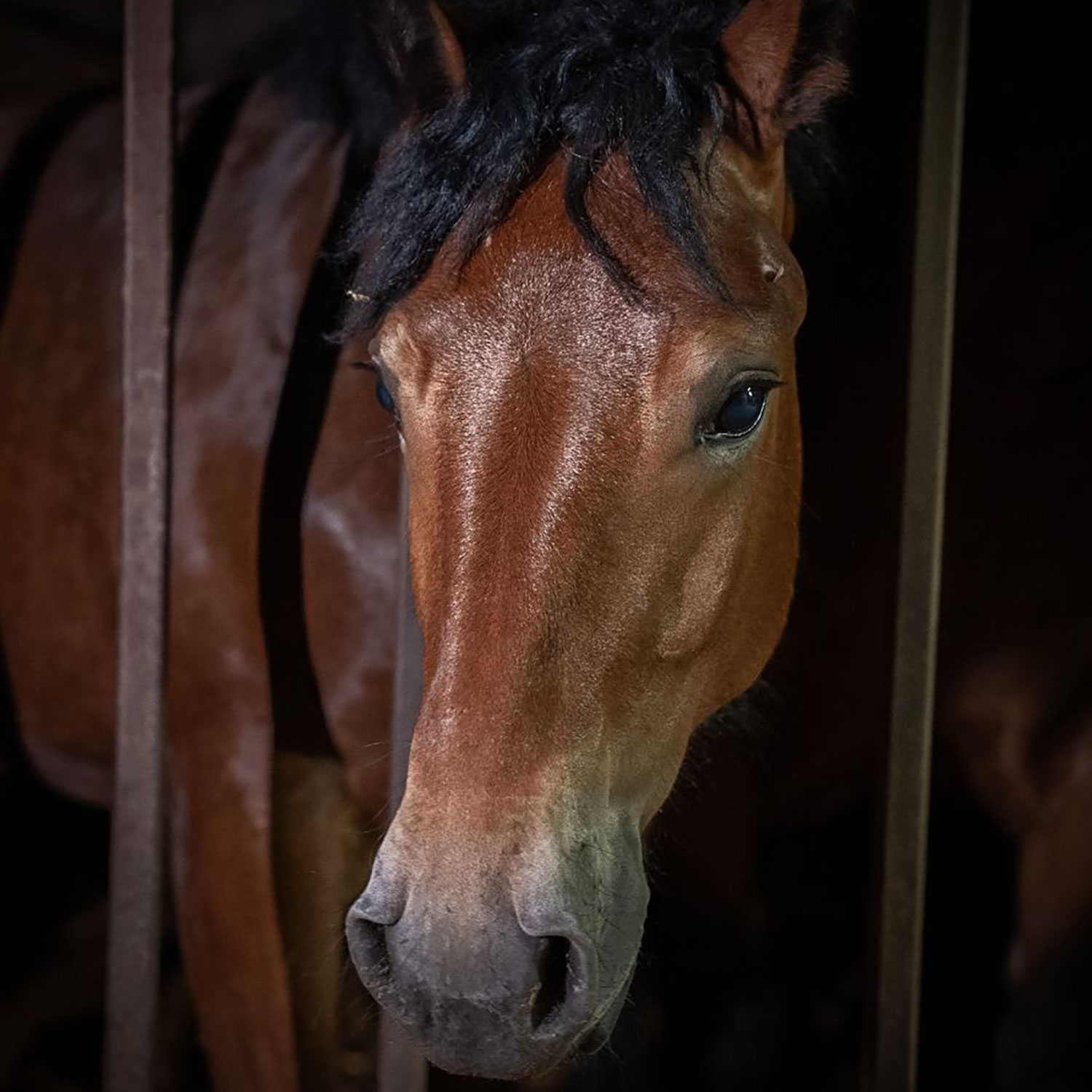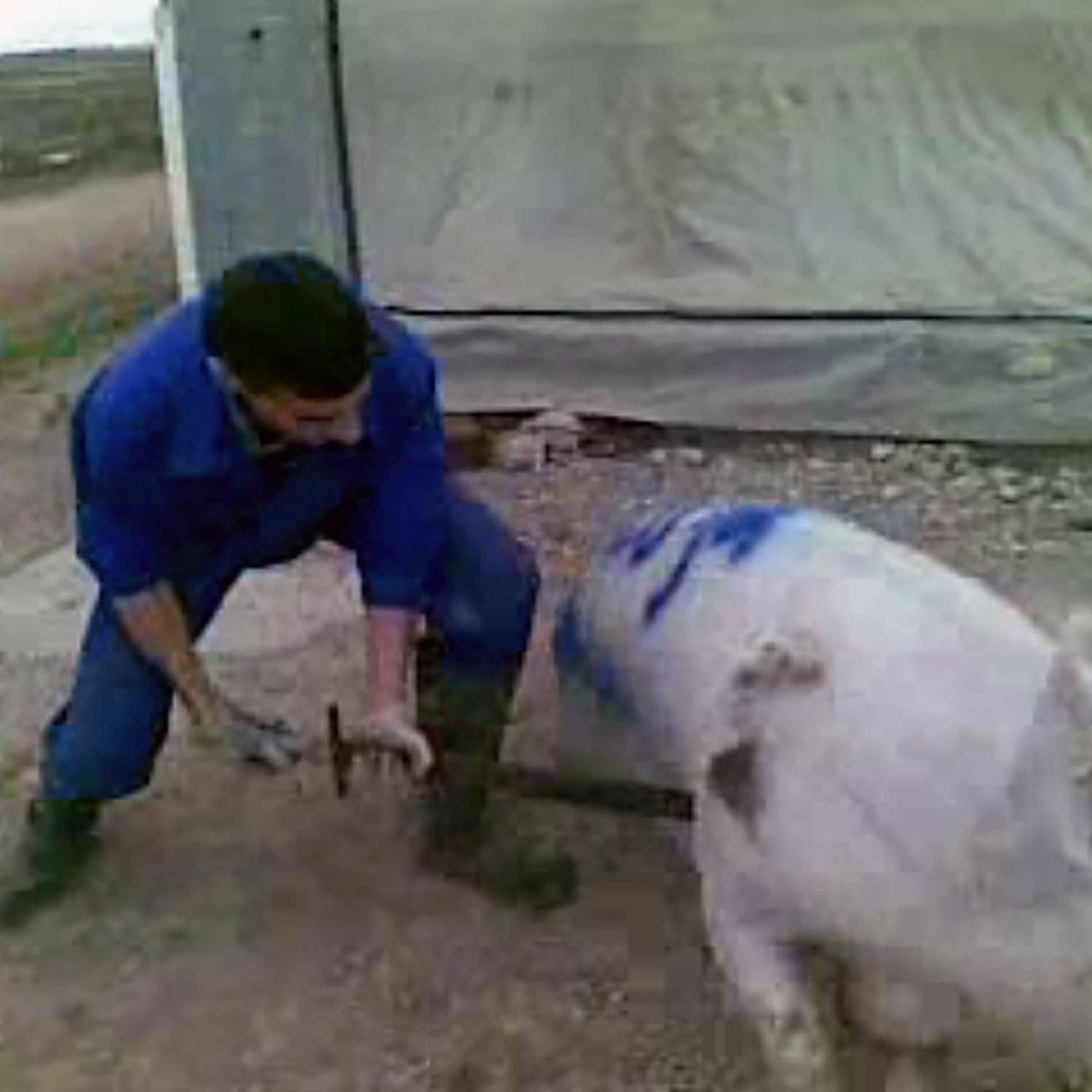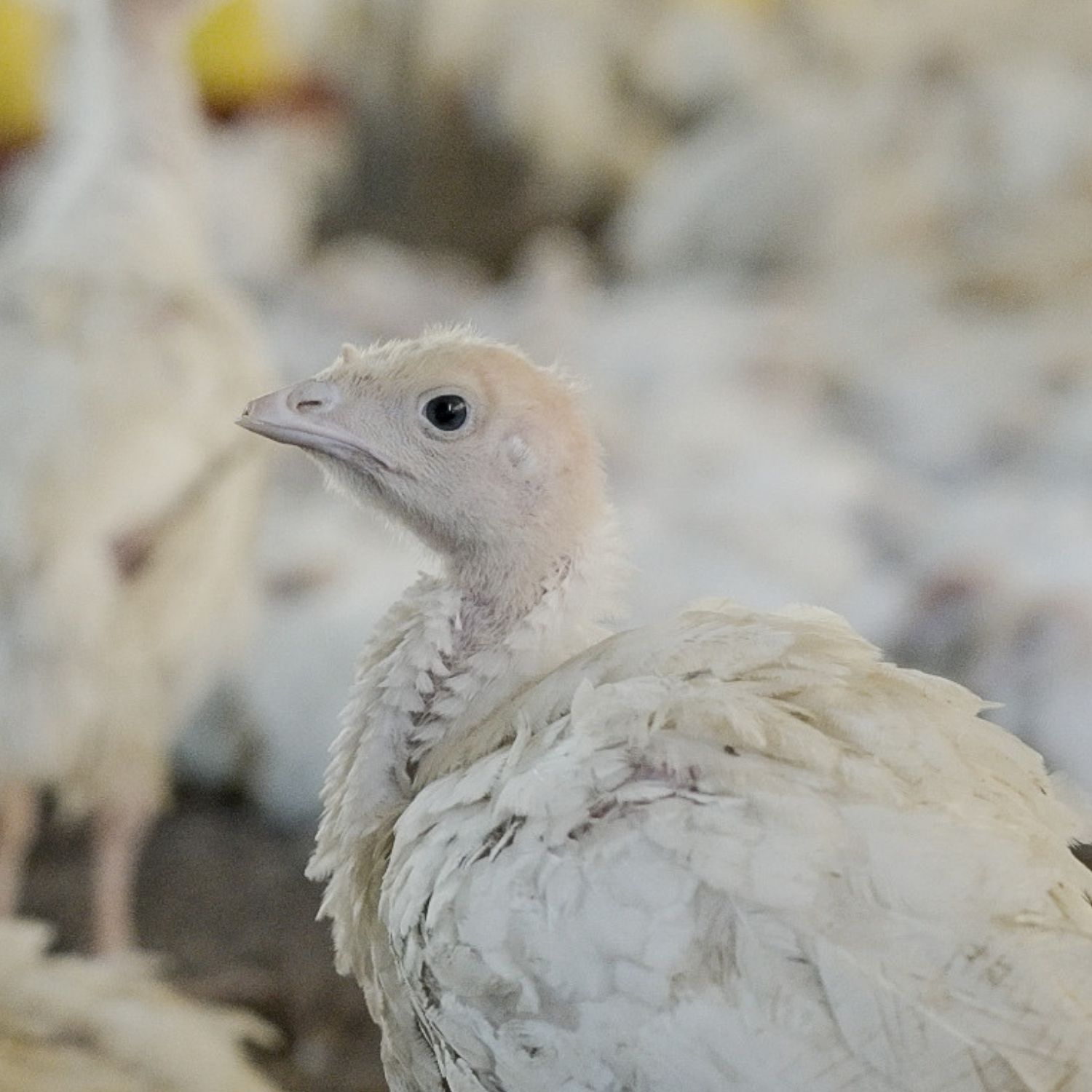Cinnabon, Auntie Anne’s, Jamba, Brioche Dorée and Others to Ban Cages for Hens Worldwide
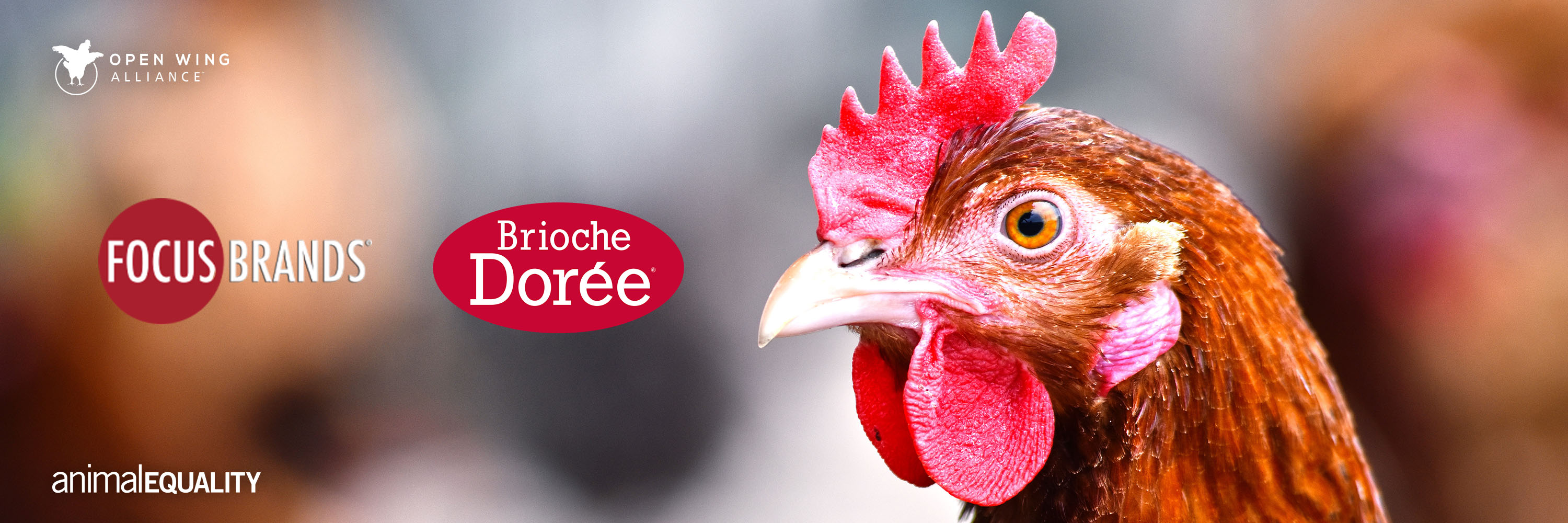
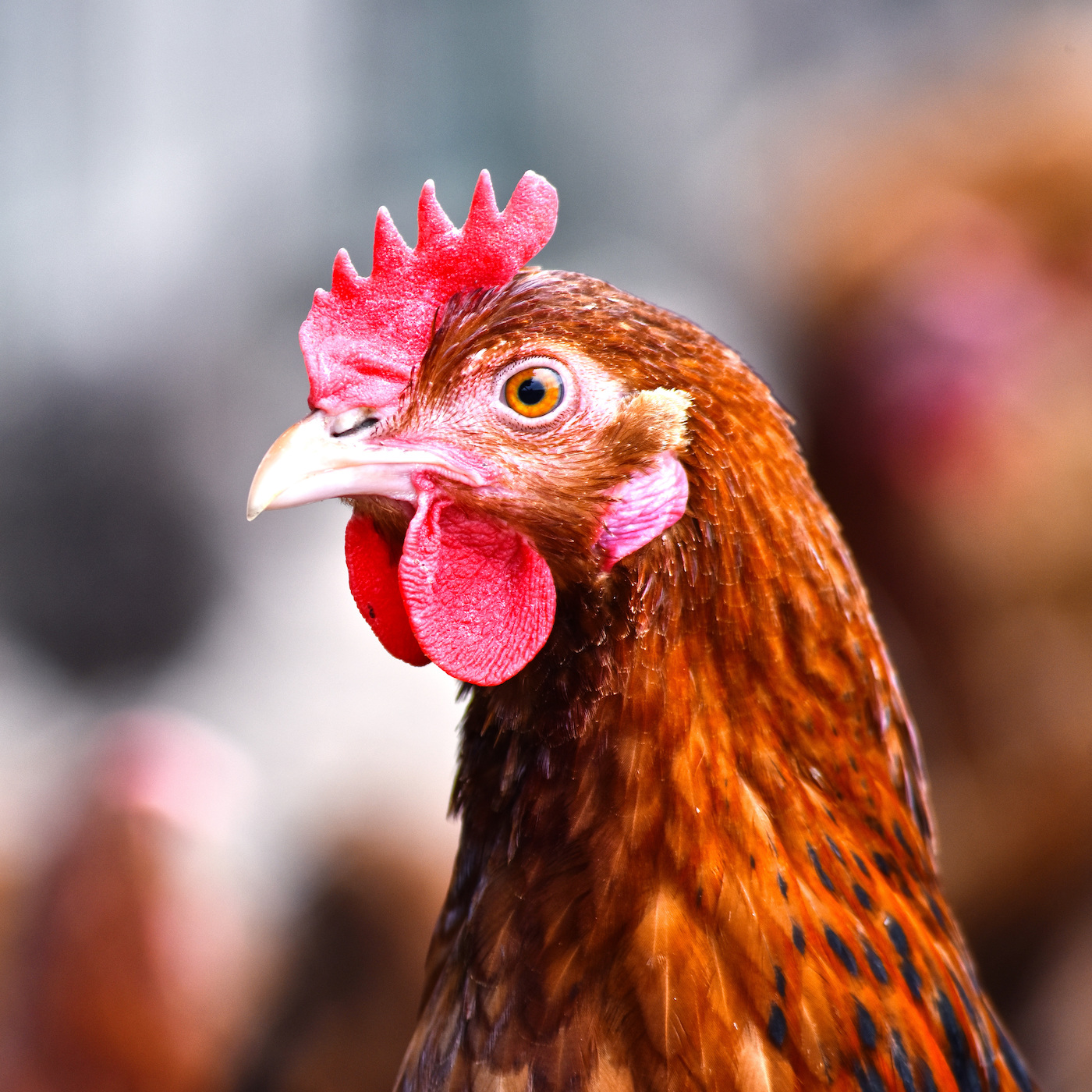
Leading food conglomerates Focus Brands and Groupe Le Duff release comprehensive global animal welfare policies pledging to source 100 percent cage-free eggs and egg products for all of their restaurant locations worldwide. These critical commitments to improve the corporations’ welfare of hens occurred within just 17 days of the launch of public campaigns carried out by Animal Equality and the 80 major animal protection organizations of the global coalition, the Open Wing Alliance. These new policies are set to benefit countlesst hens in the global supply chains of Focus Brands and Groupe Le Duff.
Focus Brands—a leading developer of multi-channel foodservice brands around the globe—including Cinnabon, Auntie Anne’s, Jamba, Carvel, McAlister’s Deli, Moe’s Southwest Grill, and Schlotzsky’s—operates in more than 6,000 locations in over 60 countries. The corporation released a cage-free commitment for all of its brands and locations globally, agreeing to transition away from battery cages in the US and Canada by 2026 and by 2028 globally.
Groupe Le Duff—a French conglomerate with over 1,300 locations around the world—owns several restaurant and agri-business brands including the French bakery, Brioche Dorée. Groupe Le Duff released a cage-free commitment for all of its brands and locations globally, agreeing to transition away from battery cages by 2025. Groupe Le Duff has agreed to provide annual progress reporting to ensure its deadlines are met.
Activists from 80 influential animal protection organizations in 63 countries joined forces to demand better from Focus Brands and Groupe Le Duff on behalf of its customers and the hens suffering daily within its supply chains. Thousands of supporters all around the world joined the effort by taking hundreds of thousands of digital actions urging the companies to go cage-free.
Why go cage-free?
On the majority of egg farms, hens are confined in cramped, filthy cages with six to ten other birds in each–with no more than the space of an iPad per bird. The cages are so small and crowded, they cannot engage in their natural or instinctive behaviors. Often, their bodies are caught in the caging, resulting in fractured or broken bones, deformities, and severe feather loss. Some hens, too exhausted or unable to move, end up trampled to death by their cage mates. Eliminating cage systems significantly improves the well-being of hens used for eggs. While more must still be done to make long-term changes to their quality of life, this is a significant first step for these animals trapped in the food industry.
As consumer demand for cage-free eggs continues to grow, global companies and industry leaders like Focus Brands have been abandoning cages around the world. More than 100 other global commitments to end the use of battery cages have been made by some of the largest companies in the world, including Burger King, Dunkin’, Krispy Kreme, Unilever, Nestlé, Aldi, InterContinental Hotels, Sodexo, Kraft Heinz, Compass Group, Shake Shack, Famous Brands, Costa Coffee, and Barilla.
Support this work by making a donation today. Right now, all gifts are being matched by a generous donor!

